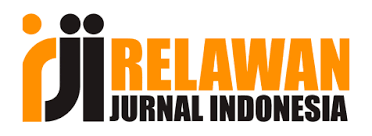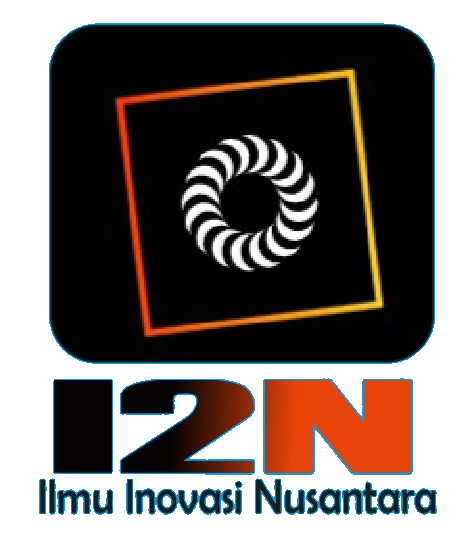The Role of Parent-Child Reading in the Development of Children's Early Reading and Writing Abilities: A Multidisciplinary Perspective Review
DOI:
https://doi.org/10.58557/(ijeh).v5i4.364Keywords:
Cognitive development, Early literacy, Interaction quality, Language richness, Parent-child co-readingAbstract
Parental education plays a pivotal role in fostering children’s early reading and writing development, yet the mechanisms through which parent–child co-reading supports learning outcomes remain underexplored. This study addresses the problem by investigating how different aspects of co-reading contribute to children’s literacy growth. Specifically, it aims to identify and evaluate the combined influence of three dimensions of co-reading: high-frequency reading sessions, high-quality parent–child interaction, and rich language input. To achieve this goal, we employed a qualitative micro-analysis of recorded and transcribed co-reading sessions from exemplar families. Key variables—reading frequency, interaction quality, and language richness—were measured using observational coding protocols and discourse analysis. Their individual and combined impacts on children’s vocabulary development, comprehension, and cognitive engagement were examined through comparative analysis. Findings show that frequent co-reading sessions significantly enhance children’s vocabulary acquisition and text comprehension. Moreover, high-quality interaction—particularly open-ended questioning and emotional scaffolding—was found to strengthen children’s intrinsic motivation and cognitive flexibility. Language input that included demonstrations of multiple-meaning words and complex sentence structures promoted both receptive and expressive language development. The most impactful results emerged when these three elements functioned synergistically in a dynamic loop of questioning, modeling, and responsive feedback, producing a multiplier effect on learning outcomes. The use of our three-dimensional model as a framework for designing co-reading interventions. Schools, families, and community programs should be equipped with guidelines to implement this model. Future research should expand to longitudinal and multicultural studies, including the integration of smart reading technologies for broader impact
References
Alam, A., & Mohanty, A. (2023). Does musically responsive school curriculum enhance reasoning abilities and help in cognitive development of school students? In Interdisciplinary Perspectives on Sustainable Development (pp. 337–341). CRC Press.
Alam, A., & Mohanty, A. (2023). Music and its effect on mathematical and reading abilities of students: Pedagogy for twenty-first century schools. In Interdisciplinary Perspectives on Sustainable Development (pp. 342–346). CRC Press.
Altamimi, M. O., & Ogdol, R. (2023). The effects of shared reading approach on improving students' comprehension. International Journal of Research in Education and Science, 9(2), 308–328.
Blaabæk, E. H. (2022). Cultural inputs and accumulating inequality in children’s reading: A dynamic approach. European Sociological Review, 38(3), 425–439.
Chavez, J. V., Adalia, H. G., & Alberto, J. P. (2023, July). Parental support strategies and motivation in aiding their children learn the English language. In Forum for Linguistic Studies (Vol. 5, No. 2, p. 1541).
Chennupati, S., Restrepo, M. A., Glenberg, A., Walker, E., Blais, C., & Franco, L. G. (2025). Parent teaching using the enhanced Moved by Reading to accelerate comprehension in English intelligent tutoring system to teach question-asking during shared book reading in Latino families. Language, Speech, and Hearing Services in Schools, 56(1), 158–176.
Danmaisoro, H., Odejide, B., Jhessim, E., Raji, A., & Kolawole, A. (2024). Design and development of an AI-driven communication model for stimulating memory recall in patients with Alzheimer’s and other neurodegenerative diseases. World Journal of Advanced Research and Reviews, 24, 1227–1237.
Dean, L., Churchill, B., & Ruppanner, L. (2022). The mental load: Building a deeper theoretical understanding of how cognitive and emotional labor overload women and mothers. Community, Work & Family, 25(1), 13–29.
Donnelly, S., & Kidd, E. (2021). The longitudinal relationship between conversational turn‐taking and vocabulary growth in early language development. Child Development, 92(2), 609–625.
Farrow, J., Wasik, B. A., & Hindman, A. H. (2024). Exploring the relations between teachers’ high-quality language features and preschoolers’ and kindergarteners’ vocabulary learning. Journal of Child Language, 1–29. https://doi.org/10.1017/S0305000924000061
Figueroa, M. (2024). Language development, linguistic input, and linguistic racism. Wiley Interdisciplinary Reviews: Cognitive Science, 15(3), e1673.
Gillam, S. L., Vaughn, S., Roberts, G., Capin, P., Fall, A. M., Israelsen-Augenstein, M., ... & Gillam, R. B. (2023). Improving oral and written narration and reading comprehension of children at risk for language and literacy difficulties: Results of a randomized clinical trial. Journal of Educational Psychology, 115(1), 99.
HD, A. A., & Darmawan, D. (2023). The influence of classroom management and the use of learning media on increasing student learning motivation. Hikmah, 20(2), 372–382.
Ho, C. J., Duursma, E., & Herbert, J. S. (2023). Mother–infant shared book reading in the first year of life. Infant and Child Development, 32(6), e2465.
Hossain, K. I. (2024). Reviewing the role of culture in English language learning: Challenges and opportunities for educators. Social Sciences & Humanities Open, 9, 100781.
Hu, Q., Zhang, G., Qin, Z., Cai, Y., Yu, G., & Li, G. Y. (2022, September). Robust semantic communications against semantic noise. In 2022 IEEE 96th Vehicular Technology Conference (VTC2022-Fall) (pp. 1–6). IEEE.
Imbaquingo, A., & Cárdenas, J. (2023). Project-based learning as a methodology to improve reading and comprehension skills in the English language. Education Sciences, 13(6), 587.
Imbaquingo, A., & Cárdenas, J. (2023). Project-based learning as a methodology to improve reading and comprehension skills in the English language. Education Sciences, 13(6), 587.
Jing, M., Ye, T., Kirkorian, H. L., & Mares, M. L. (2023). Screen media exposure and young children's vocabulary learning and development: A meta‐analysis. Child Development, 94(5), 1398–1418.
Klahr, D., & Wallace, J. G. (2022). Cognitive development: An information-processing view. Taylor & Francis.
Krulj, J. R., Marković, E., Simijonović, I., & Lazović, N. R. (2024). Intrinsic and extrinsic motivation within the context of creating a stimulating learning environment. Društvene i Humanističke Studije, 9(2), 1329–1344.
Lantolf, J. P., & Poehner, M. E. (2023). Sociocultural theory and classroom second language learning in the East Asian context: Introduction to the special issue. The Modern Language Journal, 107(S1), 3–23.
Lerner, R. E., Grolnick, W. S., Caruso, A. J., & Levitt, M. R. (2022). Parental involvement and children’s academics: The roles of autonomy support and parents’ motivation for involvement. Contemporary Educational Psychology, 68, 102039.
Li, D. (2024). Research and improvement of language and reading development in preschool children. Language, 7(6), 183–191.
Liu, C., & Chung, K. K. H. (2022). Effects of fathers’ and mothers’ expectations and home literacy involvement on their children's cognitive–linguistic skills, vocabulary, and word reading. Early Childhood Research Quarterly, 60, 1–12.
Liu, H., Liu, J., Cui, L., Teng, Z., Duan, N., Zhou, M., & Zhang, Y. (2023). Logiqa 2.0—An improved dataset for logical reasoning in natural language understanding. IEEE/ACM Transactions on Audio, Speech, and Language Processing, 31, 2947–2962.
Liu, S., & Saad, M. R. B. M. (2025). Role of extensive reading in vocabulary development, reading comprehension, and reading speed: A systematic literature review. Eurasian Journal of Applied Linguistics, 11(1), 87–99.
Lopez-Caudana, E., Ponce, P., Mazon, N., & Baltazar, G. (2022). Improving the attention span of elementary school children for physical education through an NAO robotics platform in developed countries. International Journal on Interactive Design and Manufacturing (IJIDeM), 16(2), 657–675.
Luarn, P., Chen, C. C., & Chiu, Y. P. (2023). Enhancing intrinsic learning motivation through gamification: A self-determination theory perspective. The International Journal of Information and Learning Technology, 40(5), 413–424.
Ma, L., Mazidi, M., Li, K., Li, Y., Chen, S., Kirwan, R., & Wang, Y. (2021). Prevalence of mental health problems among children and adolescents during the COVID-19 pandemic: A systematic review and meta-analysis. Journal of Affective Disorders, 293, 78–89.
McLeod, S. (2024). Vygotsky’s Zone of Proximal Development. Simply Psychology. https://www.simplypsychology.org/zone-of-proximal-development.html
Mufidah, Z. (2024). Learning Arabic vocabulary from the Quran to facilitate early Arabic speaking skills and memorizing Quran at Baiturrahman Kindergarten in Malang City. International Journal of Global Accounting, Management, Education, and Entrepreneurship, 4(2), 298–305.
Nobutoshi, M. (2023). Metacognition and reflective teaching: A synergistic approach to fostering critical thinking skills. Research and Advances in Education, 2(9), 1–14.
Paradis, J. (2023). Sources of individual differences in the dual language development of heritage bilinguals. Journal of Child Language, 50(4), 793–817.
Pasqualotto, A., Altarelli, I., De Angeli, A., Menestrina, Z., Bavelier, D., & Venuti, P. (2022). Enhancing reading skills through a video game mixing action mechanics and cognitive training. Nature Human Behaviour, 6(4), 545–554.
Pathomchaiwat, L., & Thongrin, S. (2025). Enhancing EFL pre-service teachers’ reading strategy instruction through locally and globally contextualized materials. rEFLections, 32(2), 787–812.
Q, & Yeung, S. S. S. (2022). Do vocabulary, syntactic awareness, and reading comprehension in second language facilitate the development of each other in young children? Learning and Instruction, 82, 101682.
Rahman, F. F., & Suryanto, B. T. (2022). The correlation between students’ writing skills and speaking skills. International Journal of English Education and Linguistics (IJoEEL), 4(1), 31–39.
Ramalingam, K., & Jiar, Y. K. (2022). Influence of intrinsic and extrinsic motivation in learning among primary school students. Management, 23(1), 1889.
Reina-Reina, C., Antón, E., & Duñabeitia, J. A. (2024). A systematic literature review of the impact of cognitive stimulation programs on reading skills in children aged between 6 and 12 years old. Education Sciences, 14(3), 229
Saepudin, S., Pabbajah, M. T. H., & Pabbajah, M. (2024). Unleashing the power of reading: Effective strategies for non-native Arabic language learners. Alsinatuna, 9(2), 109–130.
Savopoulos, P., Bryant, C., Fogarty, A., Conway, L. J., Fitzpatrick, K. M., Condron, P., & Giallo, R. (2023). Intimate partner violence and child and adolescent cognitive development: A systematic review. Trauma, Violence, & Abuse, 24(3), 1882–1907.
Shabanali Fami, F., Arjmandnia, A. A., Moradi, H., & Esmaeili Anvar, S. (2024). Effectiveness of a mixed cognitive intervention program (computer-based and home-based) on improving cognitive and academic functions in school-aged children with specific learning disorder (SLD): A pilot study. Education and Information Technologies, 29(10), 11891–11926.
Smith, R., Snow, P., Serry, T., & Hammond, L. (2021). The role of background knowledge in reading comprehension: A critical review. Reading Psychology, 42(3), 214–240.
Syakhrani, A. W., & Aslan, A. (2024). The impact of informal family education on children's social and emotional skills. Indonesian Journal of Education (INJOE), 4(2), 619–631.
van Steensel, R., Gouw, B., Liefers, S., & van Aspert, T. (2024). Cognitively challenging talk during shared reading: Effects of parent gender, child gender and relations with story comprehension. Journal of Early Childhood Literacy, 24(4), 839–861.
Wang, W., & Song, Y. (2024). MARS: Benchmarking the metaphysical reasoning abilities of language models with a multi-task evaluation dataset. arXiv Preprint, arXiv:2406.02106.
Washington-Nortey, P. M., Zhang, F., Xu, Y., Ruiz, A. B., Chen, C. C., & Spence, C. (2022). The impact of peer interactions on language development among preschool English language learners: A systematic review. Early Childhood Education Journal, 50(1), 49–59.
Zhang, Y., Taumoepeau, M., & Reese, E. (2024). Context matters: Examining the linguistic aspects of educator-toddler talk. Australasian Journal of Early Childhood. https://doi.org/10.1177/18369391241306765
Zheng, Z., Liao, L., Deng, Y., & Nie, L. (2023). Building emotional support chatbots in the era of LLMs. arXiv Preprint, arXiv:2308.11584.
Downloads
Published
How to Cite
Issue
Section
License
Copyright (c) 2025 Zhang Yue, Hafiz Hanif

This work is licensed under a Creative Commons Attribution-ShareAlike 4.0 International License.














